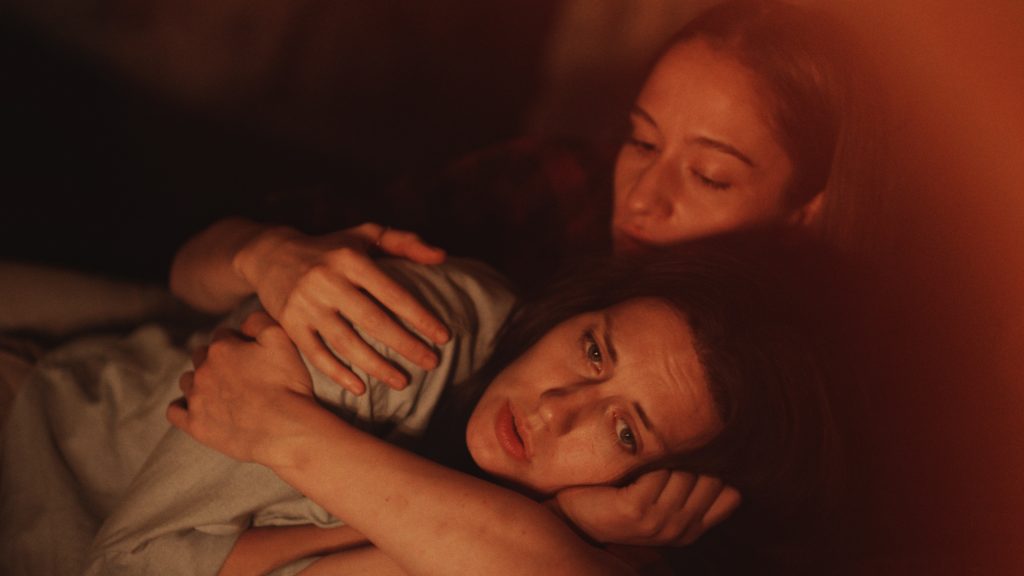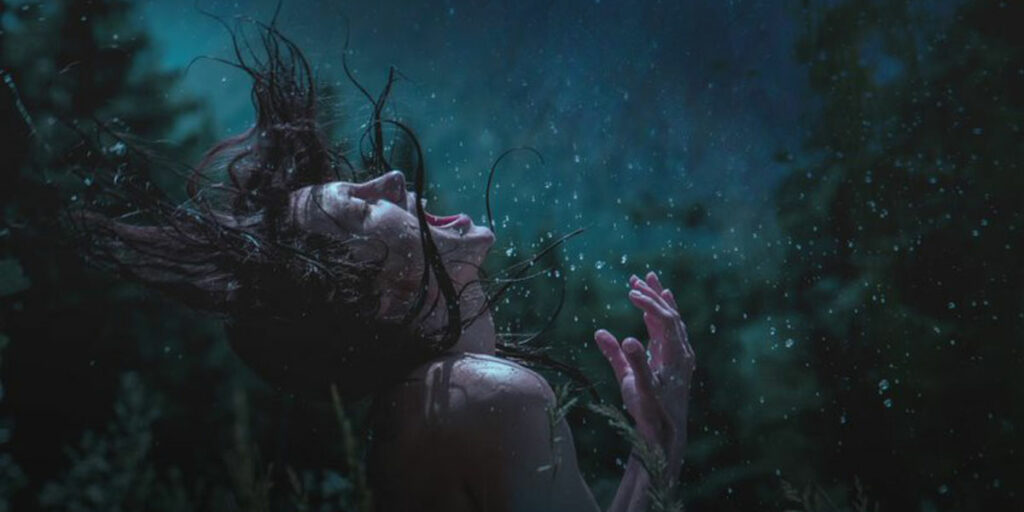Tereza Nvotová’s Nightsiren intriguingly explores misogyny and trauma through surrealist horror, but feels a little disjointed at times.
The term ‘witch’ has long been used to perpetuate misogynistic violence against women, having justified horrendous mistreatment, abuse and persecution for centuries. In Tereza Nvotová’s Nightsiren (Svetlonoc), witches are the women who dare to differ from the traditional villagers in mountainside Slovakia. Intriguing but a bit disjointed, the film uses elements of surrealist horror to explore themes of misogyny and trauma, showcasing Nvotová’s potential to be a fresh, compelling new female voice in the genre.
Šarlota (Natalia Germani) escaped the clutches of her abusive mother as a young girl, but her little sister slipped and fell off a cliff in the attempt. When she returns as an adult to the remote mountainside village to tie up late mother’s affairs, a lot of unresolved trauma is brought to the surface. The locals regard her with suspicion, verging on disdain, and she sleeps in a derelict cabin that once belonged to the local ‘witch’, Otyla (Eva Bittová). She befriends another local woman, Mira (Eva Mores), who is subject to similar mistrust, and slowly starts to reconcile aspects of her past. But when two young children go missing, the villagers turn on the two women and accuse them of witchcraft, with horrifying consequences.
Perhaps the most impressive aspect of Nightsiren is the way it uses the treatment of Šarlota and Mira to symbolise the overarching theme of misogyny. A lot of the resentment harboured by the villagers stems from the pair being openly dismissive of ghost stories, their attitudes towards sex and their disdain for the patriarchal nature of village life. They don’t follow the religious, traditional and ‘accepted’ way of things. And as such, they are subject to the violent reactions that fear, prejudice and anger often produce.

The film uses that violence – and more often than not it’s highly sexualised – as a way of metaphorically examining the darkest aspects of the female experience. It’s bold and persuasive, but also upsetting and frustrating. And it feels like that’s precisely the point. It isn’t anything new, the misogyny or the sexual violence, and the glimpses of a modern highway in the background highlight the fact that this is still a modern problem, despite life – and attitudes – in the village very reminiscent of the past.
And it’s through this thematic exploration that the film creates a lot of its suspense. Something feels off, almost immediately, as Šarlota arrives in the village. People don’t believe she is who she says she is and unabashedly watch her as she hikes around the woods. Frederico Cesca’s camera creeps through the stunningly atmospheric locations, lingering on the odd details and dramatically panning out to show off the beauty and the expanse of the world Šarlota has stepped back into. It creates tension and effectively builds a world of intrigue and unease, even if the narrative itself is a little predictable.
And Nvotová isn’t afraid to take risks, using surrealism to explore the film’s themes in sections that are equal parts baffling and compelling. A writhing mass of neon-streaked bodies illuminate the dark woods as a representation of repressed sexual energy; a wolf lurks in Šarlota’s periphery like a secret, and the cliff looms ominously like the only escape. They’re effective as a visual tool, but narratively don’t help with the fact that Nightsiren feels a little disjointed. Divided up into seven chapters, it feels a little choppy and a little like the story took a backseat for some of the more surreal sequences, which may make the pay off a little less worth it at the end.
But in any case, Nightsiren certainly showcases Nvotová as a filmmaker who is willing to explore complex themes and navigate the possibilities of genre film. Nightsiren is a flawed but fantastical look at misogyny and trauma, and a sure sign of intriguing things to come for its director.
Nightsiren had its UK Premiere at the 2023 Glasgow Film Festival on 6-7 March, 2022. Read our reviews from the Glasgow Film Festival!

